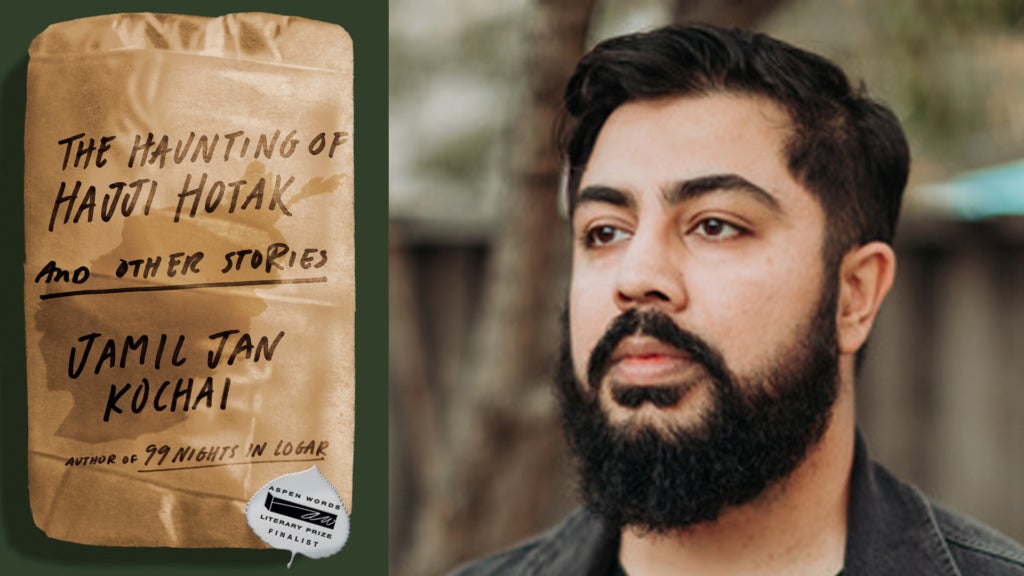In March, Aspen Words announced the 2023 finalists for the sixth annual Aspen Words Literary Prize, a $35,000 award recognizing a work of fiction that addresses a vital social issue. The selected books explore the climate crisis, racism, xenophobia, and mental health, and feature a range of dynamic voices. While the jury works on selecting a winner, Aspen Words chatted with the nominees about their work, how they view their role as a writer in this cultural and political moment, and the best piece of writing advice they’ve received.

Jamil Jan Kochai is the author of “99 Nights in Logar” a finalist for the Pen/Hemingway Award for Debut Novel and the DSC Prize for South Asian Literature. His short story collection, The Haunting of Hajji Hotak and Other Stories was published in July 2022. He was born in an Afghan refugee camp in Peshawar, Pakistan, but he originally hails from Logar, Afghanistan. His short stories have appeared in The New Yorker, Ploughshares, Zoetrope, The O. Henry Prize Stories, and The Best American Short Stories. His essays have been published at The New York Times and the Los Angeles Times. Kochai was a Stegner Fellow at Stanford University and a Truman Capote Fellow at the Iowa Writers’ Workshop, where he was awarded the Henfield Prize for Fiction. Currently, he is a Hodder Fellow at Princeton University.
What about our current cultural and political moment inspired you to write The Haunting of Hajji Hotak and Other Stories?
I began this book in 2016 as the American War in Afghanistan was approaching its fifteenth year. By that time, hundreds of thousands of Afghans had already lost their lives in the war. The US military was bombing wedding and mosques. Soldiers were massacring families and mutilating young boys. Many of the most impoverished and disenfranchised people in Afghanistan were being subjected to constant surveillance, harassment, imprisonment, robbery, exploitation, torture, and outright murder. I had seen and heard the devastating short term (and long term) effects of the war on my family members in Afghanistan. Ultimately, I felt compelled to write about the war, and the way that I, as an American citizen, felt implicated in its violence.
What did you learn while writing this book?
I researched Afghan history, focusing on the Soviet Occupation, the subsequent years of civil war, and the American Occupation. My research on the early years of the US occupation was especially eye opening. Whether the US was funding rapist war lords, covering up sexual crimes, accidently murdering their own allies, or torturing taxi drivers to death, the depths of the US military’s depravity and incompetency seemed to constantly border on the absurd.
Which of the characters did you find most difficult to write?
Dully was one of the most difficult characters to figure out. “The Tale of Dully’s Reversion,” in general, was a difficult story to complete. It took me almost five years to finish it, and at the heart of the stories many difficulties was the challenge of writing Dully, the PhD student turned monkey turned captive turned rebel leader turned disenchanted warlord. It took a great deal of time to figure out how and why Dully would take this unique path and become the character he would become by the end of the story.
Some say writers should write the book they need to read. Why did you need this book, and what do you hope it says to others?
My entire life, I’d grown up with my family’s stories about this small village in Logar, Afghanistan. Many of these stories were joyous and beautiful, but just as often, they were immensely violent. My parents survived Soviet bombings that levelled villages. They witnessed massacres that wiped out entire families. And yet, there was almost no written record of the occurrence of these historical massacres, especially in English. It was incredibly disconcerting to think that the memory of these atrocities might be lost to time, and I needed to make my own small effort to make sure these stories were preserved in some manner or another.
What was the last book you couldn’t put down?
Inheritors by Asako Serizawa (2020). This heart-shattering collection of linked stories explores political violence, nationalism, memory, and loss as it follows multiple generations of a Japanese family scattered across the world. The prose is incredible. The characters are complex and alive. And there are scenes that will absolutely break your heart.

